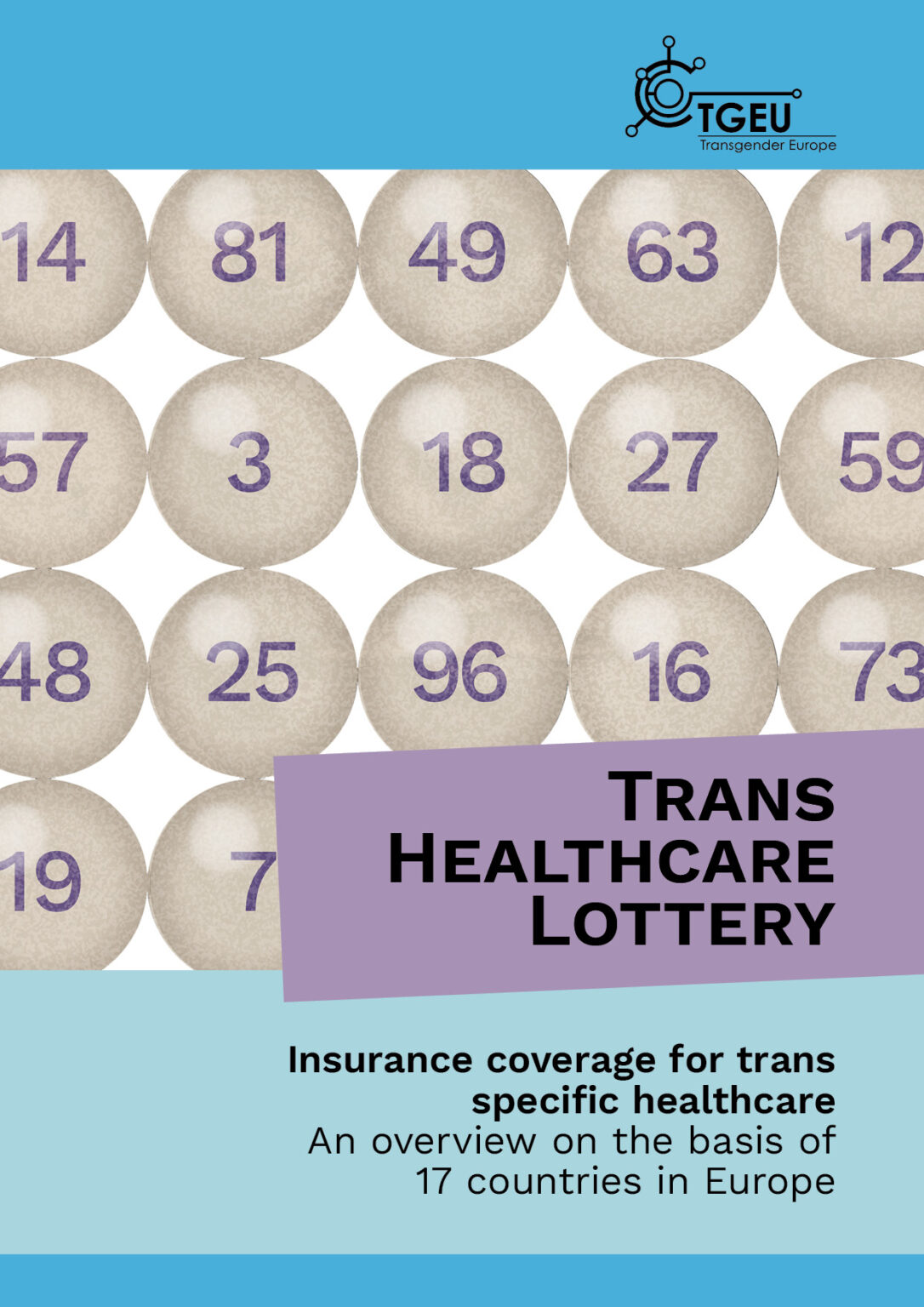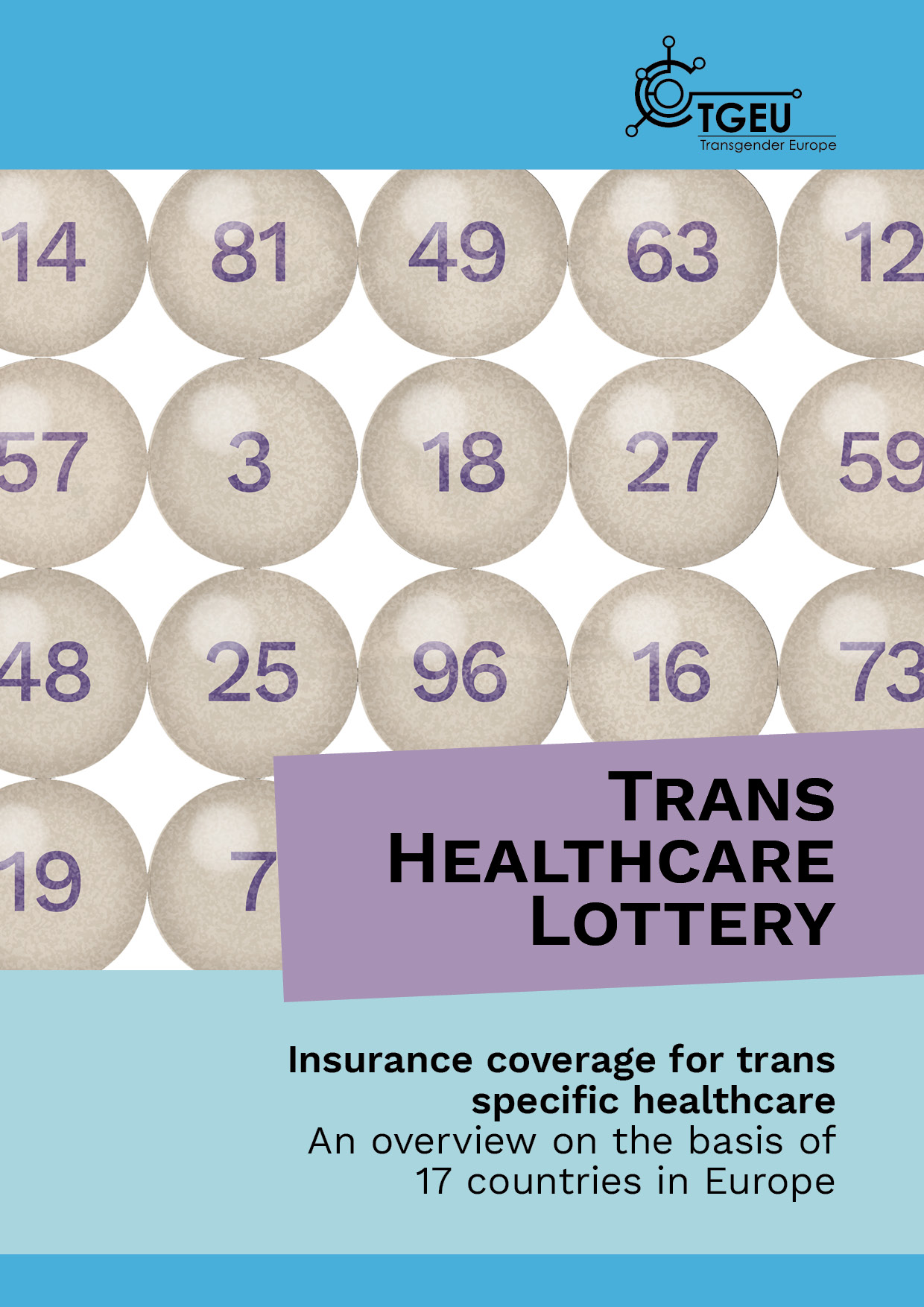
TGEU is publishing the report, “Trans healthcare lottery: Insurance coverage for trans specific healthcare”
Trans people are routinely discriminated against in healthcare settings and their health and well-being are underserviced. Within the European Union, trans people are the most likely among LGBT people to face discrimination in healthcare. One in every three trans people has personally faced discrimination by healthcare and social services personnel in 2019. 11% of trans people expressed difficulties when using or trying to access healthcare services due to being LGBTI.
TGEU’s latest healthcare report was developed in 2017, and reaffirmed that trans people face numerous barriers in enjoying their right to health, both in general and trans-specific healthcare services. It also highlighted trans people’s difficulty in accessing affordable and comprehensive insurance that would cover their healthcare costs.
This report includes an analysis of the overarching themes in trans healthcare cost coverage in 17 countries: Austria, Belgium, Czech Republic, Finland, France, Georgia, Germany, Italy, Luxembourg, the Netherlands, Poland, San Marino, Slovakia, Slovenia, Spain, Russia, and the UK (England and Scotland). It reveals that, sadly, it is only in a handful of European countries, such as the UK, the Netherlands, Germany, or Belgium that public health insurance covers most trans-specific healthcare costs. In most other countries, public insurance only covers a limited number of procedures and, in some, such as Georgia, Russia, and Poland, virtually nothing is covered. Furthermore, even in countries where insurance coverage is available, trans people routinely face excruciatingly-long waiting periods and humiliating treatment.
The report shows that trans people are subjected to pathologisation and find themselves at the mercy of doctors, who routinely act as gatekeepers between them and the healthcare they want to access. Insurance coverage is subject to discriminatory limitations and often provided on an ad hoc basis. Trans people who are poor, who live outside big cities, non-binary people, and trans people with disabilities face additional barriers in accessing affordable care.
